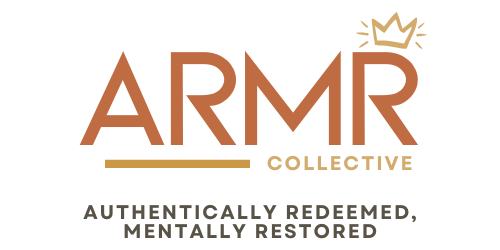The Question That Haunts Us All
This one’s going to be heavy, friends. Of all the questions I hear about faith, this might be the hardest.
“How could a loving God let bad things happen?”
It comes up in countless conversations – when a child dies of a terrible illness, when natural disasters devastate communities, when suffering seems senseless and overwhelming. I’ve been scared to tackle this question, not because I want to avoid it, but because I know how much pain and doubt it carries. But it’s too important to leave unanswered.
Maybe you’re asking this question right now while sitting in a hospital room, or after losing someone you love, or just looking at the state of our world. Maybe you’ve had well-meaning people give you answers that felt hollow or even hurtful.
I get it. I’ve been there too.
When Religious Answers Fall Short
I remember sitting in church after my 15-year-old cousin died of leukemia, my hands clenched in my lap, listening to someone say “It’s all part of God’s perfect plan.” Perfect?! My heart wanted to scream. There was nothing perfect about watching a vibrant, beautiful teenager waste away from cancer. Nothing perfect about watching her parents’ and sister’s hearts break. Nothing perfect about the empty chair at family gatherings that still breaks my heart more than ten years later.
Let’s be real: if you’re looking for neat, tidy answers about why suffering exists, I don’t have them.
Anyone who claims they can fully explain why bad things happen is probably trying to sell you something. But what I can share is my own journey of wrestling with this question – not as someone who has it all figured out, but as someone who’s still learning and growing.
Wrestling with Free Will
One of the most common responses I heard in church was about free will. While this explanation made me angry at first – it felt too simple for such deep pain – wrestling with it has helped me understand things differently. God gave humans the ability to make real choices – both good and bad. He didn’t create us to be robots that have no choice but to love Him – that would defeat the whole purpose. But with this freedom to choose comes the capacity for both good and evil. Our ability to make real choices means we can also choose to hurt each other.
Much of the pain in our world stems from humans misusing this freedom.
The Harder Questions
But what about the other stuff? What about childhood cancer? What about earthquakes and tsunamis? What about genetic diseases? These aren’t caused by human choices. This is where I, like many of you, have struggled the most.
If God is all-powerful, why doesn’t He step in?
I used to think that God’s power meant He should prevent all suffering. But watching my own daughter grow has given me a different perspective. When she was learning to walk, I could have prevented every fall. But I knew that catching her every time would actually harm her development.
Sometimes love means letting someone face difficulties so they can grow stronger.
Now, I know what you might be thinking – that analogy falls pretty flat when we’re talking about terminal illness or devastating loss. And you’re right. I won’t pretend otherwise. There are depths of suffering that no simple explanation can touch.
Beyond Clichés
I’ve come to dislike the phrase “God’s plan” – it’s become one of those Christian clichés that does more harm than good. When my cousin died, hearing “it’s all part of God’s plan” made me want to scream. Even now, years later, I prefer to think about God’s presence in our pain rather than some divine blueprint for suffering.
A Different Way of Seeing
Rather than seeing God as a cosmic puppet master who either causes or fails to prevent suffering, what if we saw divine presence differently?
What if God’s power shows up not in preventing pain, but in being present within it and helping transform it?
What if we saw His presence in humanity’s capacity to respond to suffering with love, courage, and compassion?
This perspective doesn’t solve everything.
It doesn’t erase the pain or answer every question. But it offers a different way of engaging with suffering.
Instead of asking why God isn’t preventing our pain, maybe we can start seeing how He’s working through it – through the doctors who dedicate their lives to healing, through friends who show up in our darkest moments, through strangers who help disaster victims rebuild, through communities that rally around those in need.
When Doubt Feels Overwhelming
I know many people have left faith entirely over this question. I respect that choice – the reality of suffering presents a profound challenge to belief in a loving God. I still struggle with it myself. What keeps me holding on isn’t neat answers or complete understanding, but my experience of God’s presence in the darkest moments. Sometimes that presence feels like peace in the storm. Sometimes it feels like strength to take one more step. Sometimes – maybe even often – it feels like nothing at all. I know that’s a hard thing to hold onto when everything hurts. Trust me, I’ve been there.
But looking back at my lowest points, I can see now where that presence was, even when I couldn’t feel it at the time.
Let’s Talk About It
I’d love to hear your thoughts on this. Whether you believe in God or not, whether you’re angry at Him or seeking Him or somewhere in between – your perspective matters. How have you dealt with this question in your own life? What has helped you make sense of suffering? What still keeps you up at night?
This isn’t about finding perfect answers. It’s about walking together through life’s hardest questions, supporting each other, and maybe finding some light along the way.
A note from the heart: This post isn’t meant to be the final word on suffering and faith. It’s just my way of opening up a conversation about one of life’s deepest mysteries. Whether you agree with my perspective or not, I hope you’ll feel welcome to share your thoughts and experiences.
For those who are interested in the theology of all this, I’ll be posting a part two in the coming months! In the meantime, enjoy this little sneak peek:
“For the wages of sin is death; but the Gift of God is eternal life through Christ Jesus our Lord.
Romans 6:23
Evil and suffering are consequences of our own sins. We all deserve death, but Jesus paid the price for us through God’s Mercy and Grace. Maybe instead of asking why a loving God allows bad things to happen, we should reflect on why a Holy and Just God allows us sinners to live lives without constant pain and suffering…”
Keep an eye out! 🙂



